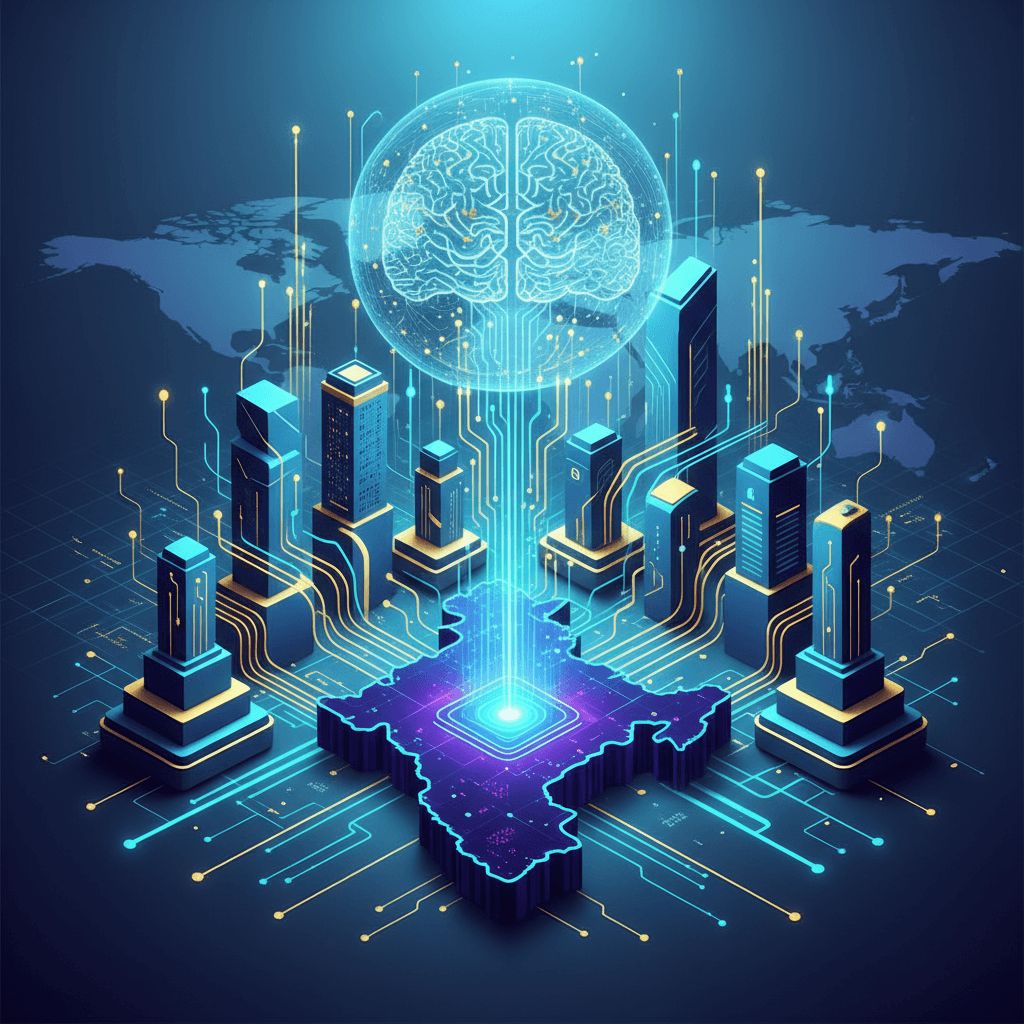Karnataka's Mid-Market GCCs Propel India to Global AI R&D Leadership
These agile innovation hubs are driving global deep-tech and AI advancement, transforming multinational companies from Karnataka.
September 9, 2025

Karnataka has solidified its position as the undisputed leader of India's burgeoning mid-market Global Capability Center (GCC) ecosystem, housing nearly half of all such centers in the country. A recent report from the Karnataka Digital Economy Mission (KDEM) in collaboration with Zinnov reveals that the state is home to approximately 230 out of India's 480 mid-market GCCs.[1] These centers, which have become critical drivers of innovation and digital transformation for their parent companies, employ a significant workforce of over 74,000 professionals within Karnataka, underscoring the state's pivotal role in this high-growth sector.[1] This concentration is not merely a numbers game; it represents a strategic shift where mid-sized global enterprises are increasingly choosing Karnataka, particularly Bengaluru, as the nerve center for their high-value operations and technological advancements.
The state's dominance in the overall GCC landscape is well-established, with various reports indicating it hosts over 30% of the more than 1,700 GCCs in India.[2][3] Bengaluru alone is a major hub, with a 35% share of the country's total GCC market.[1] However, the recent findings illuminate a powerful trend within a specific, fast-growing segment. Mid-market GCCs, typically established by enterprises with annual revenues between $100 million and $1 billion, are proving to be particularly agile and impactful.[4][5][6] This segment is expanding rapidly, with more than 45 new mid-market GCCs established across India in the last two years alone, accounting for about 35% of all new GCC setups.[4][6] The growth rate of these centers in Karnataka is reported to be 1.4 times faster than their larger counterparts, highlighting their dynamism and strategic importance.[1] This surge is attributed to Karnataka's robust ecosystem, which includes a vast pool of digital talent, a thriving startup culture that fosters innovation, and proactive government policies designed to attract investment.[2][7][8][9] The state's dedicated GCC policy, the first of its kind in India, aims to attract 500 new centers by 2029, which is expected to create 350,000 new jobs and generate an economic output of $50 billion.[2][3][10][11][12]
These mid-market GCCs are fundamentally different from the traditional view of offshore service centers focused on cost arbitrage. They are increasingly functioning as innovation labs and transformation hubs, taking ownership of critical business functions and product development.[13][14] Despite operating at about 40% of the scale of larger GCCs, these centers demonstrate a 1.3 times higher presence in transformation-focused roles and mature 1.2 times faster.[4][6] They are heavily invested in deep-tech capabilities, with a significant share of their workforce dedicated to areas like Artificial Intelligence, Machine Learning, cybersecurity, cloud computing, and data science.[15][6][16] Reports indicate that India is now home to 47% of the global product management talent for mid-market GCCs and over 25% of their deep-tech workforce.[4][6] This concentration of specialized skills allows these centers in Karnataka to drive end-to-end product and platform ownership, contributing significantly to their parent companies' global strategies.[14][6]
The rise of these technologically advanced GCCs in Karnataka has profound implications for the AI industry. India, and Karnataka in particular, is cementing its position as a global hub for AI innovation and talent.[17][18] Indian GCCs are no longer just implementing AI solutions developed elsewhere; they are R&D powerhouses co-creating the next generation of AI products and platforms.[19] The rich talent pool in cities like Bengaluru, which is considered the world's second-largest hub for AI talent, enables these centers to lead complex projects in predictive analytics, intelligent automation, and Generative AI.[7][18] This evolution is transforming the role of GCCs from support functions to strategic partners that directly influence business outcomes and competitive advantage.[20][21] The synergy between the established GCCs, the vibrant startup ecosystem, and academic institutions creates a fertile ground for AI research and development, further accelerating innovation.
In conclusion, Karnataka's emergence as the home for half of India's mid-market GCCs is a testament to its strategic advantages and a powerful indicator of future economic and technological trends. These centers are not merely back-office operations but are at the forefront of global innovation, particularly in the AI domain. They are creating high-value jobs, nurturing leadership talent, and driving significant digital transformation for multinational corporations. As the Indian government continues to foster a supportive policy environment, the momentum of mid-market GCCs is expected to grow, further solidifying Karnataka's role as a critical node in the global technology and AI landscape.[22] This trend signals a maturing Indian tech industry, moving decisively up the value chain from service delivery to strategic global leadership.
Sources
[3]
[7]
[9]
[11]
[12]
[13]
[14]
[15]
[16]
[17]
[18]
[19]
[20]
[21]
[22]